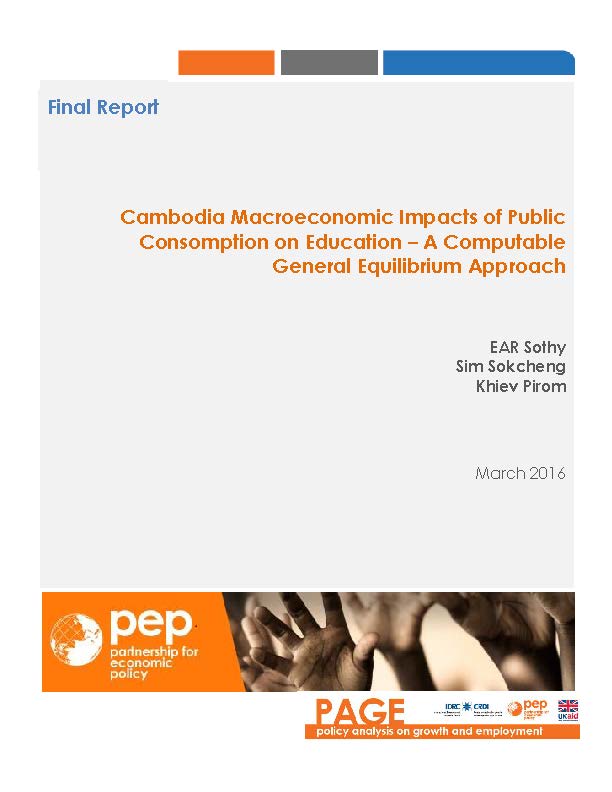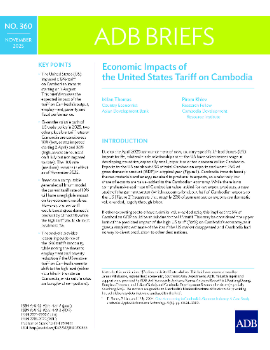
Cambodia Macroeconomic Impacts of Public Consumption on Education — A Computable General Equilibrium Approach
Keyword: Human capital, skills gap, education policies, public education expenditure, labour market
Abstract/Summary
Lack of human capital is seen as one of the most significant constraints for Cambodia to be more competitive and to reach upper-middle-income country status. A recent discussion among researchers, policymakers, the private sector and development partners reached a broad consensus that a skills gap is emerging in Cambodia. In spite of concerted efforts, policymakers and bureaucrats still face challenges in designing and executing education policies that could build more human capital, especially highly skilled and educated labour. Information on the impacts of increased public education expenditure on the labour market, and who would benefit from this spending, is very important for promoting inclusive growth. Many studies have examined the nature of education policies and the structure of this sector’s spending. But none has yet provided a systematic country-wide analysis and quantified the impacts of public education spending on the labour market and household welfare. Employing available social accounting matrix, government budget data, the Cambodian Socio-Economic Survey and the Cambodia Economic Census, this research study aims to fill this gap by examining the distributive impacts of education public expenditure.



